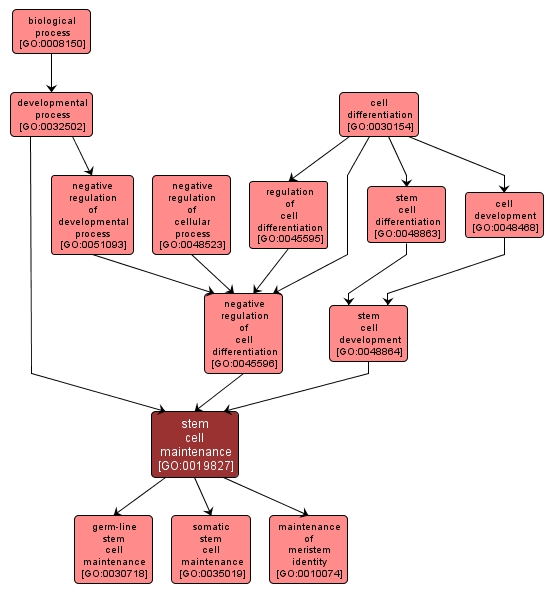GO TERM SUMMARY
|
| Name: |
stem cell maintenance |
| Acc: |
GO:0019827 |
| Aspect: |
Biological Process |
| Desc: |
The process by which an organism retains a population of stem cells, preventing the commitment of all stem cell progeny to a differentiated cell fate. |
Synonyms:
- maintenance of pluripotency
|
|

|
INTERACTIVE GO GRAPH
|














